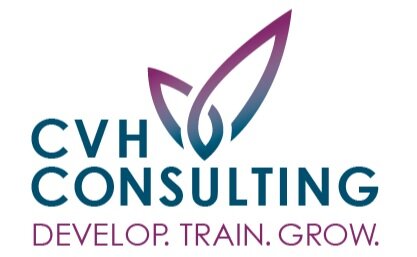Representation Matters: Amplifying Diverse Voices at Public Health Events
On more than one occasion over the past six months, I have come across several conference panels, breakout sessions, and public health events with white only presenters and speakers. What makes this worse? The top three that come to mind all had a health equity theme.
We’ve all heard of “manels” — male-dominated panels at conferences. Recently, the scientific community has taken steps to address the lack of female representation. In 2019, the head of the NIH called for an end to all-male panels. But this only starts to solve one problem — where are the Black, Latinx, and Indigenous folks?
Before moving on, I want to be clear on something: we shouldn’t be calling on our colleagues of color to sit on the diversity committee or speak at the sessions on inclusiveness. We all know there are incredible Black professionals in the field of public health who are experts in epidemiology, program management, health education, research — the list goes on. Invite them because of this expertise and treat them with the respect they deserve.
As white people and white public health professionals, we have a responsibility to speak up and act. This burden should not fall on Black, Indigenous, or other people of color. It is up to us to draw attention to this problem and encourage those in the field to do better.
What can we do? I have come up with a list of ideas for planning committees, speakers, and event participants. I see this as a conversation starter, and I hope that people will add to the ideas below.
Planning Committees
What does your planning committee look like? Are you in a room (or on a zoom call) full of white professionals — this should be your first red flag. Diversify your committees by including more people of color and inviting new people to the table. If you have white men picking the speakers, they will be more likely to pick white men. The more diversity you can bring to the planning table, the more representation you will have at your conference. And please do not pick one Black person to represent all Black people. Tokenizing is not the answer. Invite panelists because of what they have to offer.
Also, pay your speakers.
Speakers
As speakers, it is often unknown to us who else will be speaking at a conference until the agenda is released. Does that mean speakers do not have a role to play in addressing the problem? Not at all.
I have started to include a statement about my willingness to give up my seat for someone else. It goes something like this: “I do want to note that it is important for me to be involved with summits/conferences with diverse speakers and representation. I am willing to give up my seat for a Black person or person of color, and I am also willing to help find speakers to fill a gap.”
By doing this, I am offering my seat to someone else and reminding the planners of the conference that representation matters.
Speakers can also send a message to the planning committee and the organization hosting the event to say something after the fact. If possible, recommend speakers for the topic or future events.
Participants
Be more critical. You paid money to take part in this event, your voice matters. Provide critical feedback and speaker recommendations if you can.
Consider waiting until the agenda and speakers are announced so you can see who is presenting on what topics.
I have written letters to organizations when I did not attend the conference. I can see the list of white people from the link in my Twitter feed.
We all play a role in addressing this problem.
What to do Next
Now is the time to act. We are at a turning point in our history. Ask yourself, if I stay silent now about things that matter, when will the time come to speak out? We, as white people, must be uncomfortable and vulnerable.
I would love to hear your thoughts and ideas. I am always learning, so please add your comments and feedback below so we can grow together.
Here are a few reading recommendations and podcasts that have influenced me and my work. Again, please add to the list!
Articles
N.I.H. Head Calls for End to All-Male Panels of Scientists
The False Promise of Anti-racism Books
What it Will Take to Improve Diversity at Conferences
Books
Racism: Science & Tools for the Public Health Professional by The American Public Health Association
Just Medicine: A Cure for Racial Inequality in American Health Care by Dayna Bowen Matthew
Medical Apartheid by Harriet Washington
Me and My White Supremacy by Layla F Saad
I'm Still Here: Black Dignity in a World Made for Whiteness by Austin Channing Brown
When They Call You a Terrorist: A Black Lives Matter Memoir by Patrisse Khan-Cullors and Asha Bandele



